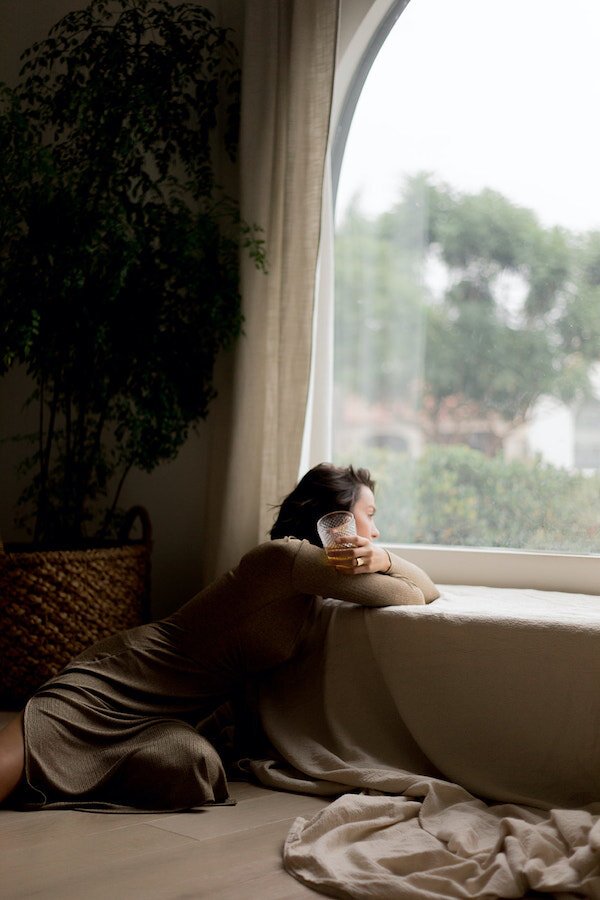
What Is A Highly Sensitive Person (HSP)? Plus, A Quiz To See If You Are One&
Imagine being overstimulated by light and sound or stressful environments. Or being confronted with the questions, “Why are you so sensitive?” or “Why are you so emotional?” consistently. For years, this was me. Hard on the outside, soft on the inside. People compared me to a coconut. I was known for displaying a hard outer core around the people who made me uncomfortable, only softening and showing my sensitive side to a select few.
“It’s estimated that around 15 to 20 percent of the world’s population is highly sensitive. ”
Like me, there are people who are confronted with their sensitivity all of the time but in different ways—it’s estimated that around 15 to 20 percent of the world’s population is highly sensitive. Some sensitive people are also much more empathetic towards the feelings of others and even absorb those feelings themselves. This personality trait is known as being a Highly Sensitive Person (HSP).
A somewhat newer term coined in 1996 by American clinical research psychologist and author Dr. Elaine Aron, HSPs have deeper sensitivity to internal and external factors in their central nervous systems. Aron’s research became the primary source regarding high sensitivity and its relevance in the world because of her own curiosity to explain life as an HSP and her desire to find a community.
“An HSP is likely to be more empathetic and aware of the feelings of those around them because of their conscious ability to connect with people’s emotions.”
According to Dr. Aron, HSPs often process information more deeply than others, causing them to make connections between new information and similar experiences. This can also mean an HSP is likely to be more empathetic and aware of the feelings of those around them because of their conscious ability to connect with people’s emotions.
Not to be confused with shyness, high sensitivity is an innate trait, meaning a person is born with a brain that works differently than others. This trait can present itself in childhood but may be more challenging to recognize because it is harder to identify specific causes of children’s emotional behaviors.
While the personality trait doesn’t have an official diagnosis, there are certain ways a person can determine whether or not they are an HSP. For example, a highly sensitive person may be prone to feeling overwhelmed in stressful situations and, therefore, may avoid conflict.
“HSPs are reflective, deep thinkers.”
Additionally, HSPs are reflective, deep thinkers (one of the many benefits of the personality trait!). They can also be wonderful friends and listeners because of their empathetic and nonjudgmental nature. HSPs, when in the right environment, prefer vulnerability and openness too, and they often find beauty in seemingly mundane moments.
Still not sure if you’re a Highly Sensitive Person? This assessment from Dr. Elaine Aron is a great place to start. It includes some of the following yes/no statements to help you determine if you’re an HSP:
-
“I get uncomfortable when someone asks me to do too many things at once”
-
“I am deeply moved by the arts and music”
-
“I find myself needing to withdraw during busy days, into bed or into a darkened room or any place where I can have some privacy and relief from stimulation.”
We also recommend the following resources for learning more about Highly Sensitive People, whether your friend/loved one or you yourself are an HSP:
-
Dr. Elaine Aron’s blog for all things HSPs, including how the trait may present itself in children, men and extroverted/introverted people.
-
For readers: The Highly Sensitive Person by Dr. Elaine Aron & Sensitive (available for preorder) by the founders of Sensitive Refuge (a sister site of Introvert, Dear).
-
For movie buffs: “Sensitive and In Love” follows two siblings who are HSPs.
-
These therapists and mental health professionals specialize in working with and understanding HSPs.
“I’ve learned that my sensitivity is my superpower.”
Learning more about HSPs and how the trait may affect you or those around you is essential for offering empathy. For me, I’ve learned that my sensitivity is my superpower. Being highly sensitive is a positive and wonderful trait; in no way is it a deficit. The world needs more compassion, sympathy, and reflection and HSPs can help light that way forward.
Brianna Robles is a Brooklyn, NY based lifestyle freelance writer. Her creative writing platform, Writing My Wrongs, encourages people to share their full story. When she’s not writing, you can find her performing at open mics and trying new restaurants.




